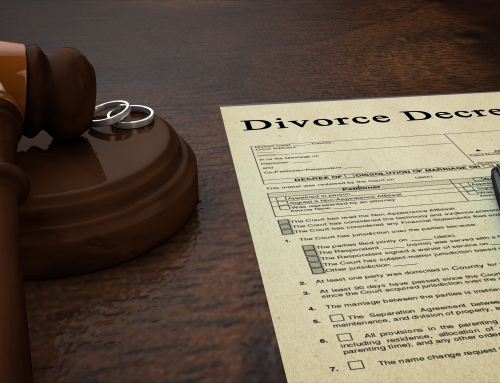Sure, a competent judgment enforcement lawyer knows the law and has the knowledge and experience to collect your judgment. That is certainly a good reason to retain one- but there are also personal, human-psychological reasons for it as well. Consider this example:
A client, we’ll call her Jennifer, retained us for collection of her divorce judgment. Her ex, we’ll call him Mike, owed her approximately $25k from their divorce judgment. She is an extremely nice, sweet person, and she has some bad stories to tell about Mike, and also some stories of Mike’s fairly substantial assets, income, and employment.
I went after Mike full force. We levied his bank accounts, came after his business, his wages, his stock accounts, and subpoenaed him into Court to answer questions about his finances and sources of income in front of a judge.
All these efforts yielded very little, and when I met Mike in Court and went through piles of his bank and financial records, it became clear that the years after the divorce had not been kind to Mike. He had no more stock accounts and had lost the business. He was partially disabled due to an accident (he had a limp), getting by doing small jobs for clients he’d serviced for many years. He had about $300.00 in the bank at any one time.
“I’m sorry, I ended up being such a loser, and wasted all your time. A few years ago it wouldn’t have been like this, but now this is how it is.” he said to me. And it was obvious he meant every word.
The judgment against Mike turned out to be uncollectable- I knew it, Mike knew it, and Mike knew that I knew it. I explained to him that it was my professional obligation to keep after him on this debt and collect what I could until he at least went on a payment plan.
Ultimately, after some phone calls, Mike got his parents to help him out by paying a fairly significant sum to settle the debt. He came into my office with the money and said to me:
“The only reason I am paying this is because you are on the case. I’d never pay Jennifer a penny, she doesn’t deserve it.”
So what happened here? How did my client end up getting paid by a guy who had no money?
For starters, Mike is a law abiding guy; he valued his good credit, and he knew he owed the money- but, he disliked and resented Jennifer, and did not want to pay her. What Jennifer did by hiring counsel was to put a new face on the debt- someone Mike liked and actually wanted to pay. Mike actually felt guilty about not paying us, unlike Jennifer who he thought didn’t deserve a dime. Because of this, he went the extra mile to settle the debt, by doing something no judge in the country could force him to do: He actually borrowed the money.
The moral of the story: Each debtor and debt is different and must be handled differently. Some debtors are habitual scammers and debt avoiders who need to be treated mercilessly, others are normal people with a personal grudge or resentment, who need someone to bring them a bit of understanding. In the latter case, just putting a new face on the debt is half the trick of getting it paid.
Attorneys in this business need to have perceptive ability and a human touch. There are a million different kinds of debtors and debts – and many are only collected by “hardball”- but sometimes, treating someone who is decent and respectable with decency and respect will accomplish what no judge or court ever could.








Recent Comments